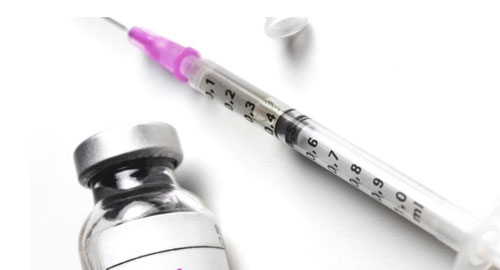- Clinic:
- 0733 945 717
- 0739 434 212

Keeping our adolescents healthy
July 19, 2024
Coping with labor and delivery
July 24, 2024Gynecological vaccines for girls (and boys)

Disease prevention is a strategy that aims to provide interventions that limit the chances of specific diseases ever occurring. Some gynecological problems can be prevented with lifestyle modifications or screening tests. Vaccines come in handy in disease prevention, and are now available in gynecology as a strategy against the human papilloma virus (HPV).
The HPV commonly affects humans, and is usually transmitted sexually. But most HPV infections are temporary and have little long term health effects. Majority of people clear the virus within 2 years. It is only in cases where the virus persists that untoward health effects usually manifest. Some HPV strains are associated with cancers of the cervix, vagina, vulva, penis, anus and even cancers of the throat. Other HPV strains can cause genital warts. There is no cure for HPV infection once it occurs, but the consequent health effects can be dealt with in various ways.
HPV vaccines have been available now for some years, but their uptake has been slow. The vaccines are best given to young girls at the ages of 11 to 12 years, but can be commenced as early as 9 years. The timing of vaccination prior to sexual exposure is crucialas it allows the body to mount an immune response long before exposure to the virus.The consequent effect is lower rates of harboring HPV in the genital tract, and reduced rates of gynecological cancers associated with HPV.One formulation of the vaccines can also be given to males, additionally protecting against genital warts and anal cancer.
Three doses of the HPV vaccine are recommended. After the first injection, the next one should be given within one to two months, and the last dose after six months. Protection against HPV infection is long-lasting, and booster doses are not recommended. Catch-up vaccination for those who have not completed three doses can be given up to the age of 26 years. And it can be given at the same time as other vaccines. Vaccination is not recommended in pregnancy, or in persons seriously ill with other conditions.
There have been occasional media reports about untoward effects of HPV vaccines. The vaccines have been available for some years now, and their safety is supported by various regulatory authorities. Most reported side effects are rare and transient. They include some pain and redness at the injection site, mild fever, headache and, nausea or vomiting. Life-threatening allergic reactions are very rare, and if suspected, should warrant immediate medical attention. Like all other vaccines, monitoring for unusual problems is always ongoing.
HPV vaccination does not negate screening for cervical cancer with regular Pap smears. This should be commenced at around the age of 25 years. Such combined strategies are crucial to reducing the burden of cervical cancer in our part of the world.
Take a fertility test today
